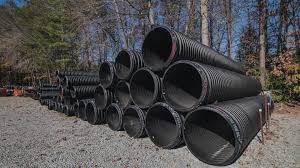Nov . 23, 2024 22:49 Back to list
dn150 hdpe pipe for irrigation products
Utilizing DN150 HDPE Pipes for Efficient Irrigation Systems
In the field of agriculture, efficient irrigation practices are critical for maximizing crop yields and ensuring sustainable farming. Among the various irrigation technologies available today, high-density polyethylene (HDPE) pipes have emerged as an excellent choice for farmers and agricultural professionals. Specifically, DN150 HDPE pipes have proven to be particularly advantageous for irrigation systems. This article explores the benefits, applications, and key considerations of using DN150 HDPE pipes for irrigation.
Understanding DN150 HDPE Pipes
DN150 refers to a nominal diameter of 150 millimeters (approximately 6 inches), making it a suitable size for a variety of irrigation applications. HDPE is a thermoplastic polymer known for its high strength-to-density ratio, which contributes to its durability and resistance to environmental stressors. The combination of these two factors makes DN150 HDPE pipes ideal for transporting water efficiently over long distances.
Advantages of Using DN150 HDPE Pipes
1. Durability and Longevity One of the most significant advantages of HDPE pipes is their durability. They can withstand extreme conditions, including temperature variations and soil movement, making them less prone to cracking and breaking compared to traditional materials like PVC or metal.
2. Corrosion Resistance HDPE pipes are highly resistant to chemical corrosion, which is essential for agricultural applications where soil and water conditions can be unpredictable. Unlike metal pipes, HDPE does not rust, ensuring a longer lifespan and reduced maintenance costs.
3. Lower Friction Loss The smooth interior of DN150 HDPE pipes reduces friction loss, allowing for efficient water flow. This characteristic is critical for maintaining the pressure needed for effective irrigation, especially in large-scale or modern farming operations.
4. Lightweight and Easy to Install HDPE pipes are significantly lighter than their metal counterparts, making them easier to handle and install. This lightweight nature reduces transportation costs and labor time, allowing farmers to set up their irrigation systems more quickly and efficiently.
5. Flexibility and Adaptability DN150 HDPE pipes are flexible, enabling them to be installed in various terrains and landscapes. This adaptability makes them suitable for diverse agricultural applications, from row crops to orchards.
dn150 hdpe pipe for irrigation products

6. Environmental Benefits As sustainability becomes a critical focus in agriculture, the use of HDPE pipes aligns with eco-friendly practices. They are recyclable and can be reprocessed into new pipes, reducing waste and promoting a circular economy.
Applications in Irrigation
DN150 HDPE pipes are versatile and can be used for various irrigation methods, including
- Drip Irrigation These pipes can be part of a drip system, delivering water directly to the root zone of plants, thereby minimizing evaporation and runoff. - Sprinkler Systems The pipes can transport water to large sprinkler systems, which are effective for irrigating large fields uniformly. - Main Supply Lines Due to their capacity to handle significant water flow, DN150 HDPE pipes are often utilized as main supply lines in more extensive irrigation systems, distributing water to smaller lateral lines.
Key Considerations
While DN150 HDPE pipes offer numerous benefits, there are some considerations to keep in mind
- Initial Costs Although HDPE pipes may have higher upfront costs compared to traditional piping materials, the long-term savings from reduced maintenance and replacement often outweigh these initial investments. - Quality Standards It’s crucial to ensure that the HDPE pipes meet relevant quality standards and certifications, especially for agricultural applications where water quality is paramount.
Conclusion
In conclusion, DN150 HDPE pipes represent a significant advancement in irrigation technology for the agricultural sector. Their combination of durability, efficiency, and flexibility makes them an excellent choice for modern irrigation systems. As farmers and agricultural professionals seek sustainable and efficient solutions to meet the challenges of water management, the adoption of DN150 HDPE pipes is a promising step forward. By investing in high-quality irrigation infrastructure, farmers can enhance productivity, conserve water, and contribute to sustainable agricultural practices.
-
High-Quality PVC Borehole Pipes Durable & Versatile Pipe Solutions
NewsJul.08,2025
-
High-Quality PVC Perforated Pipes for Efficient Drainage Leading Manufacturers & Factories
NewsJul.08,2025
-
High-Quality PVC Borehole Pipes Durable Pipe Solutions by Leading Manufacturer
NewsJul.08,2025
-
High-Quality PVC Borehole Pipes Reliable PVC Pipe Manufacturer Solutions
NewsJul.07,2025
-
High-Quality UPVC Drain Pipes Durable HDPE & Drain Pipe Solutions
NewsJul.07,2025
-
High-Quality Conduit Pipes & HDPE Conduit Fittings Manufacturer Reliable Factory Supply
NewsJul.06,2025

